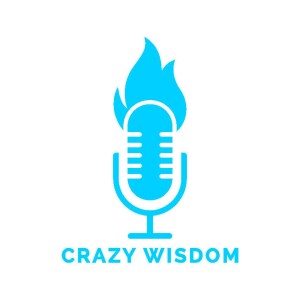
- Podcast Features
-
Monetization
-
Ads Marketplace
Join Ads Marketplace to earn through podcast sponsorships.
-
PodAds
Manage your ads with dynamic ad insertion capability.
-
Apple Podcasts Subscriptions Integration
Monetize with Apple Podcasts Subscriptions via Podbean.
-
Live Streaming
Earn rewards and recurring income from Fan Club membership.
-
Ads Marketplace
- Podbean App
-
Help and Support
-
Help Center
Get the answers and support you need.
-
Podbean Academy
Resources and guides to launch, grow, and monetize podcast.
-
Podbean Blog
Stay updated with the latest podcasting tips and trends.
-
What’s New
Check out our newest and recently released features!
-
Podcasting Smarter
Podcast interviews, best practices, and helpful tips.
-
Help Center
-
Popular Topics
-
How to Start a Podcast
The step-by-step guide to start your own podcast.
-
How to Start a Live Podcast
Create the best live podcast and engage your audience.
-
How to Monetize a Podcast
Tips on making the decision to monetize your podcast.
-
How to Promote Your Podcast
The best ways to get more eyes and ears on your podcast.
-
Podcast Advertising 101
Everything you need to know about podcast advertising.
-
Mobile Podcast Recording Guide
The ultimate guide to recording a podcast on your phone.
-
How to Use Group Recording
Steps to set up and use group recording in the Podbean app.
-
How to Start a Podcast
-
Podcasting
- Podcast Features
-
Monetization
-
Ads Marketplace
Join Ads Marketplace to earn through podcast sponsorships.
-
PodAds
Manage your ads with dynamic ad insertion capability.
-
Apple Podcasts Subscriptions Integration
Monetize with Apple Podcasts Subscriptions via Podbean.
-
Live Streaming
Earn rewards and recurring income from Fan Club membership.
-
Ads Marketplace
- Podbean App
- Advertisers
- Enterprise
- Pricing
-
Resources
-
Help and Support
-
Help Center
Get the answers and support you need.
-
Podbean Academy
Resources and guides to launch, grow, and monetize podcast.
-
Podbean Blog
Stay updated with the latest podcasting tips and trends.
-
What’s New
Check out our newest and recently released features!
-
Podcasting Smarter
Podcast interviews, best practices, and helpful tips.
-
Help Center
-
Popular Topics
-
How to Start a Podcast
The step-by-step guide to start your own podcast.
-
How to Start a Live Podcast
Create the best live podcast and engage your audience.
-
How to Monetize a Podcast
Tips on making the decision to monetize your podcast.
-
How to Promote Your Podcast
The best ways to get more eyes and ears on your podcast.
-
Podcast Advertising 101
Everything you need to know about podcast advertising.
-
Mobile Podcast Recording Guide
The ultimate guide to recording a podcast on your phone.
-
How to Use Group Recording
Steps to set up and use group recording in the Podbean app.
-
How to Start a Podcast
-
Help and Support
- Discover

Full-Stack Mindfulness and AI: Allison Durham's Vision for the Future
- Allison Durham
- Focus: Exploring AI, Software Development, and the Human Mind
- Allison doesn't make a distinction between the brain and the mind.
- She sees the mind as a dynamic range of cognitive experiences that include thoughts, perception, and self-awareness.
- The mind exists alongside the human experience and is fully integrated with bodily sensations.
- Allison discusses the topic of consciousness, noting that awareness can vary in its intensity.
- She mentions an intriguing question: Can awareness exist without the brain?
- She recalls an interesting conversation with a friend who asked her about consciousness and awareness.
- Allison describes a dream she had that was "rooted in Earth," contrasting it with another dream featuring a monstrous, otherworldly creature.
- She emphasizes her ability to fully visualize experiences in her dreams, even though she struggles with visualization in her waking life.
- Allison brings up the concept of Aphantasia, where people have difficulty visualizing images.
- She explores the idea that visualization might be trainable, mentioning techniques such as the "candle technique" to improve skill.
- She notes that while most people can recall memories with images, these people also often have underdeveloped other sensory recall like smell and hearing.
- Allison talks about Rust, a systems-level programming language she enjoys using.
- She delves into the concept of Site Reliability Engineering (SRE), explaining it stems from Google's earlier operations methods.
- She praises GitLab for packaging all the tools needed for DevOps, making it more accessible.
- She explores the concept of MLOps, which focuses on getting machine learning models into production.
- She finds the speed of open-source AI development both exciting and challenging, noting that problems can't be fully solved before new ones appear.
- Allison discusses her psychological framework, leaning heavily on mindfulness-based tactics.
- She believes in being fully aware of one's thoughts and emotional state, and she finds this awareness essential for taking proper action in life.
- She mentions her website, AdjectiveAllison.com, and her social media handle, AdjectiveAllison on X.
2:30 - Discussing the nature of the mind and its relationship to the brain and awareness
5:00 - Allison explains her experience with aphantasia
7:30 - Stuart talks about training himself to visualize through meditation
9:00 - Whether imagination and visualization can be trained as skills
11:00 - Allison's perspective on not training her own visualization abilities right now
12:00 - Allison's interest in learning Rust programming language
14:00 - Using ChatGPT to assist with engineering problems as a "rubber duck debugger"
16:00 - Explanation of DevOps, APIs, serverless solutions like Repl.it
19:00 - How AI may or may not change API and engineering architectures
21:00 - Automation as connecting APIs; engineers building instead of using no-code
23:00 - AI unlikely to change API interface itself, complexity happens behind it
24:00 - Allison's favorite psychological framework is mindfulness
25:30 - Aligning with specific frameworks depending on the problem
More Episodes
Create your
podcast in
minutes
- Full-featured podcast site
- Unlimited storage and bandwidth
- Comprehensive podcast stats
- Distribute to Apple Podcasts, Spotify, and more
- Make money with your podcast
It is Free
- Privacy Policy
- Cookie Policy
- Terms of Use
- Consent Preferences
- Copyright © 2015-2026 Podbean.com





